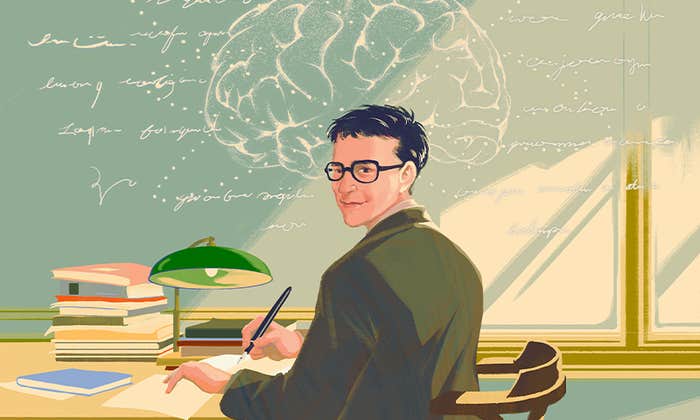My imagination in the years after my mother’s death might best be described as catastrophic. Death was everywhere. Cars sped into pedestrians. I fell down subway steps or was hit by swinging fire escapes. Grim visions I both desired and got stuck in. I inhabited my own little invented universe of disaster, taking solace in the idea that if I could imagine the worst-case scenario before it happened, I could be ready for the subsequent grief when it came to pass.
For a while, this seemed foolproof in its stability. One knows what to expect from misery: more misery. When the poet Anne Boyer was diagnosed with aggressive breast cancer, she began to find security in her diagnosis. “It provides such clear instruction for existing, brings with it the sharpened optics of life without futurity,” she wrote, “the purity of the double vision of any life lived on the line.”
The philosopher Ian Hacking saw this, too, and coined the term “looping effect” to describe how people become entrapped in their own stories of illness. Grief easily became my sole spiritual nutrition, from which I derived meaning, pleasure, and reward. One of the most frightening aspects was how thoroughly it took over my sense of self, shifting not only how I saw the world but also how I saw myself: as a griever, a person whose fundamental personality is rooted in trauma and loss.
As a bibliotherapist, she prescribes books for all sorts of ailments.
Perspectives are hard to disrupt. For me, it was extraordinarily difficult to see my situation from contrary perspectives simultaneously, and to say, I am grieving now, but this is not who I am, and I will not be grieving always.
There’s no tried-and-true mode for shifting perspective, and what works for one person may not work for another. Some, for instance, seem able to shift their perspective simply by reflecting on an artwork or a song. For others, it might take a psilocybin regimen. Still others, of course, struggle to change their perspective at all, to ever see their grief anew.
I wanted to leave the confined world of imaginary disaster and misfortune I so easily and intuitively constructed, to instead see myself and my grief from above, hoping that in its new vantage, I might find fresh insight. Some of the recommendations I got as I set out were relatively obvious (psilocybin and meditation) while others were more surprising, like music, art, and book therapy.
I realized I could establish a stronger literary foundation for grief, so I reached out to Ella Berthoud, a bibliotherapist whose encyclopedic knowledge of English-language books promised a base upon which to build.
I first spoke with Berthoud from her home near Brighton, England, her cat, Lulu, sitting regally on a wicker-back chair. Berthoud was wearing colorful eye makeup that spread out beneath her eyebrows and toward her temples, lending the impression of a friendly hawk. She pointed me toward a part of her book collection. An entire wall was full of children’s books. Another wall was dedicated to drama books. She has thousands.

As a bibliotherapist, Berthoud prescribes books for all sorts of ailments. For a while, she had a column in the British newspaper The Independent in which she and fellow bibliotherapist Susan Elderkin recommended books for specific conditions. In one representative column, the “ailment” was “hubris.” The “cure,” Berthoud and Elderkin suggested, was Emily St. John Mandel’s postapocalyptic Station Eleven, in which a deadly flu virus wipes out most of the global population. “Read this novel to remind yourself of all that is worth preserving from the realms of art, and our better natures,” they wrote. “But also to ward against the feelings of omnipotence. What is there to be proud about if all—or nearly all—is so easily lost?”
In the broadest of terms, bibliotherapy has been around for thousands of years. In ancient Egypt, passages written on papyrus were sometimes dissolved in a solution and eaten, the most literal kind of bibliotherapy. Perhaps the most compelling ancient instance of bibliotherapy is that of Cicero, the ancient Roman politician, whose daughter, Tullia, died in 45 B.C. shortly after giving birth. “I have lost the one thing that bound me to life,” he wrote to his pal Titus Pomponius Atticus.
Atticus invited Cicero to his home in Rome, where he spent time in Atticus’ famously large library, reading the ancient philosophers. Even with all of Atticus’ books at his disposal, Cicero still felt something inside him was lacking. He wanted to write an account himself. Over a number of months, he wrote an extended consolation, essentially conducting his own therapy sessions with himself—a kind of grief writing, arguably the basis for C. S. Lewis’s A Grief Observed, Joan Didion’s The Year of Magical Thinking, and Chimamanda Ngozi Adichie’s Notes on Grief.
I sent Berthoud a little over $100 via PayPal to book what would be a roughly hour-long bibliotherapy session. Before we met, she emailed me a multipage questionnaire. I disclosed my all-time favorite book (Train Dreams, by Denis Johnson), my ideal reading spot (in an empty dining car on a train), why I read (to expand my perspective and for my job), how I choose what I read, the books I couldn’t finish and have most hated, and several other questions of reading habits. At the end, I answered a few queries on what was stressing me out and what was missing in my life.
“Do you have any concerns in your life?” Berthoud asked me toward the beginning of our session.
I told her about my mother.
“After she died, did you read? Could you read?” she wondered, questions I’d never been asked. I told her about reading—and remembering nothing of—David Sedaris’s Me Talk Pretty One Day the morning after Mom died and rereading Donna Tartt’s The Secret History, a book I’d read a half dozen times, a narrative comfort.
In reading, the apparent specialness of my grief began to wane.
As Berthoud and I talked, I realized how hard it was for me to read anything especially serious or new, and how it had been that way for a long time. After our session, Berthoud had several prescriptions. The first was a book I’d already read—Max Porter’s Grief Is the Thing with Feathers. She also recommended the art critic John Berger’s Here Is Where We Meet, which I hadn’t. “Thinking about your own grief for your mother,” Berthoud wrote in her Rx for that book, which she emailed me a few days after our session, “this is a beautiful novel that explores the loss of a mother who died 15 years ago. On a hot day in Lisbon, the narrator meets his long-dead mother on a park bench, and thus begins a strange and moving journey through time and the emotions of mourning and loss, remembering, and reconnecting.”
She prescribed the poet Salena Godden’s Mrs Death Misses Death (“a powerful, poetic rant of a book, about death personified,” per Berthoud), the novelist R.K. Narayan’s The Guide (“a book that helps you to think about different ways of being in life”), one of Tove Jansson’s Moomins books, and the neuroscientist David Eagleman’s Sum (“about possible afterlives”).
The bibliotherapy session was a form of permission-giving. By reading and talking about these books, Berthoud allowed me to share my feelings without having to name them or speak of them explicitly. I could talk around emotions, using what I read about in these books.
In reading the Berger, then rereading the Porter, the apparent specialness of my grief began to wane. Here were two brilliant writers who had reckoned with death and loss. They’d done it elegantly and incisively. By writing about it, they’d found a way to put it somewhere. There was consolation in knowing others have been where I am now. The most intense kind of grief can feel unprecedented because, when it happens to us, within our own perception, it really is unprecedented (at least the first time). But countless works of history, literature, and philosophy have reckoned with grief.
In the slim, roughly 100-page Sum, Stanford neuroscientist David Eagleman presents several possible afterlives as a kind of philosophical thought experiment. In one chapter, “Angst,” Earth itself is a temporary afterlife, essentially a vacation spot where we’re able to do all the wonderful earthly things we know, like fall in love and listen to music, before having to return to our normal life, which is composed of great physical labor—the “maintenance and upholding of the cosmos.” Only on Earth are we able to relax, to achieve meaninglessness. In another, “Metamorphosis,” after we die, we’re sent to a “lobby,” a sort of purgatory, but not the typical Catholic purgatory. It’s more like a mid level business conference—“Long tables with coffee, tea, and cookies; you can help yourself.” To leave it, we must wait until, back on Earth, our name ceases to be mentioned.
Sum and most of the prescribed books considered death as something that could be altered. Not that the physicality and inevitably of death could be changed, but that the way it is typically conceptualized is itself a story we tell. We can continue to speak to our loved ones if we so choose, per Berger. Death might only ever really occur once we’re forgotten, per Eagleman.
These books made me more grateful than ever before that Mom died certain of her own stories about death and the afterlife, as part of her faith. Some want only the “capital T” Truth, the freedom that supposedly comes with total clarity, and while I used to think that was me, now, I’m not so sure. Nor am I sure that the stories we tell ourselves might necessarily conflict with that Truth. In death and grief, there may be no singular truth at all, only what we tell ourselves. ![]()
Excerpted from The Grief Cure: Looking for the End of Loss. Copyright © 2024 by Cody Delistraty. Reprinted here with permission from Harper, an imprint of HarperCollins Publishers.
Lead image: Roman Samborskyi / Shutterstock




























